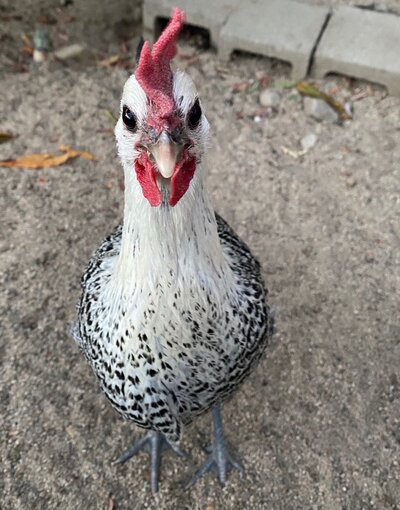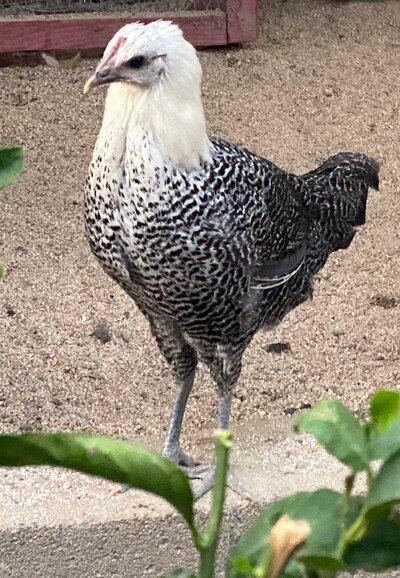@microchick : I'm slowly learning as I go, too, but there doesn't seem to be much out there about how to live with Mareks. There's information on how to cull birds with it, veterinary science articles on what it is, and precautions to take to not get it. Your messages on BYC and your article have and will help those of us with it in our flocks to feel less alone (and to be very careful about where to get new birds). Really happy to hear you have three year old vaccinated chickens that are doing well!
How do you like your Egyptian Fayoumis? We got two with our McMurray order and I've been posting a lot about them recently. Wow... they are unlike anything we've ever had. I know chickens are the closest living relative to T-Rexes, but EFs are actual pterodactyls lol. They are the second loudest thing to Howler Monkeys I've ever had the (dis)pleasure of hearing and they are bonkers skittish. We free range our birds during the day and the EFs go into all the neighbors' yards (where they continue to scream), despite the fact that we have 6ft walls with a 10ft drop off on the other side. One of the EFs already got killed by a neighbor's dogs (the dogs bark all day, so it's not like she wasn't warned) and the other peer pressures the standard breed girls to hop over the wall with her. My daughters have named the EFs "Skinny Legends" because they're so bony. They're beautiful, resistant to Mareks, and fiercely independent (always a good trait in a girl!), but I wouldn't necessarily recommend them for suburban backyards unless you like your neighborhood to sound like Jurassic Park lol.
How do you like your Egyptian Fayoumis? We got two with our McMurray order and I've been posting a lot about them recently. Wow... they are unlike anything we've ever had. I know chickens are the closest living relative to T-Rexes, but EFs are actual pterodactyls lol. They are the second loudest thing to Howler Monkeys I've ever had the (dis)pleasure of hearing and they are bonkers skittish. We free range our birds during the day and the EFs go into all the neighbors' yards (where they continue to scream), despite the fact that we have 6ft walls with a 10ft drop off on the other side. One of the EFs already got killed by a neighbor's dogs (the dogs bark all day, so it's not like she wasn't warned) and the other peer pressures the standard breed girls to hop over the wall with her. My daughters have named the EFs "Skinny Legends" because they're so bony. They're beautiful, resistant to Mareks, and fiercely independent (always a good trait in a girl!), but I wouldn't necessarily recommend them for suburban backyards unless you like your neighborhood to sound like Jurassic Park lol.





